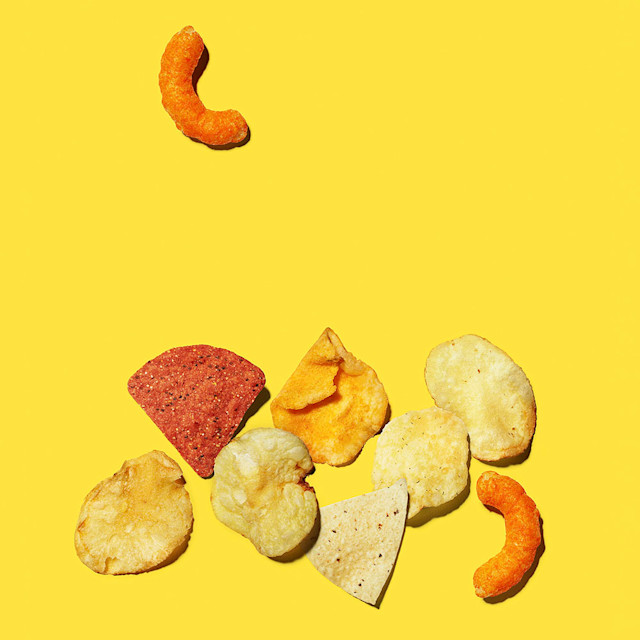They’re literally a recipe for overeating.
The science:
Hyper-palatable foods are those that combine at least two of these components in ways that trick your brain into overeating: sugar, fat, sodium, and carbohydrates.
The category is largely made up of things like potato chips and desserts. However, a new study reports nearly half of foods labeled as low in or free of those ingredients qualify as hyper-palatable.
You can fall under the spell even if you're packaged-food averse. Healthy whole foods, like salmon and sweet potatoes, can become hyper-palatable if you over-salt or over-oil them.
Expert insight:
Your body regulates consumption in part via sensory-specific satiety (SSS). It’s a process in which food becomes less pleasant the more bites you take so you don't overeat, explains lead study author Tera Fazzino, Ph.D., assistant professor of psychology at the University of Kansas in Lawrence.
The predominant ingredients in hyper-palatable foods trigger a weaker SSS response, she explains. And it only takes a pair of them—say, fat and sugar or carbs and salt—to activate your brain’s reward system.
Together, these two effects explain why it can be hard to stop indulging once you start. But Fazzino and her team found that even foods marketed as healthy versions of highly craved items, such as baked chips and low-fat cookies, have enough of the offending ingredients to qualify as hyper-palatable.
The bottom line:
Eat foods straight from the earth whenever possible and avoid heavily salting or oiling those that are naturally fatty or carb-heavy. When buying pre-packaged products, opt for ones with minimal added ingredients.
Photo: Jarren Vink / Art Partner Licensing
